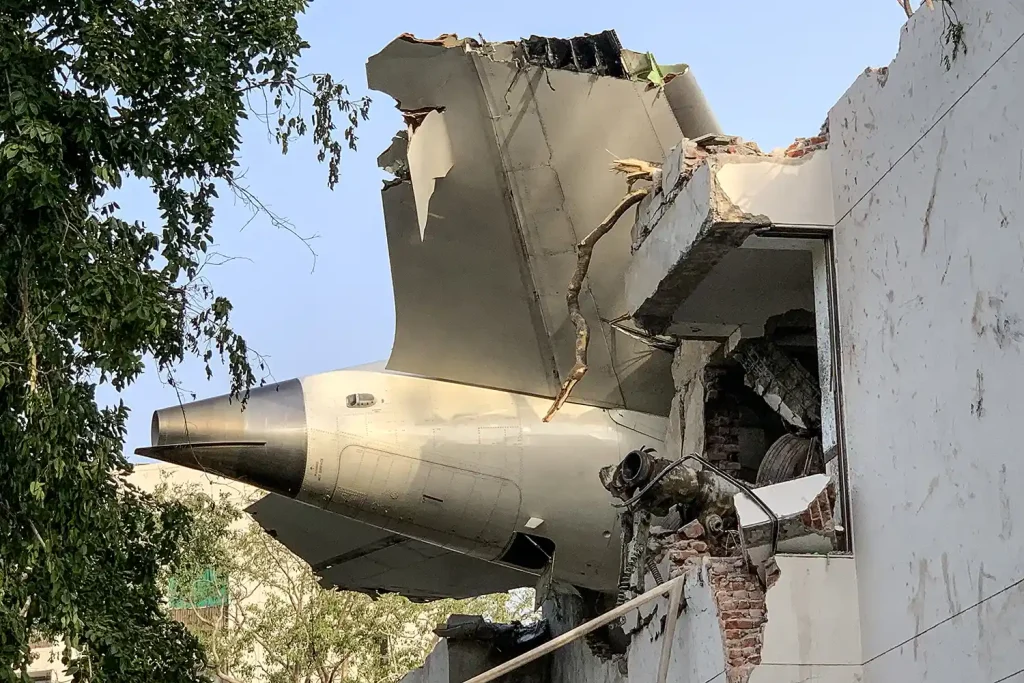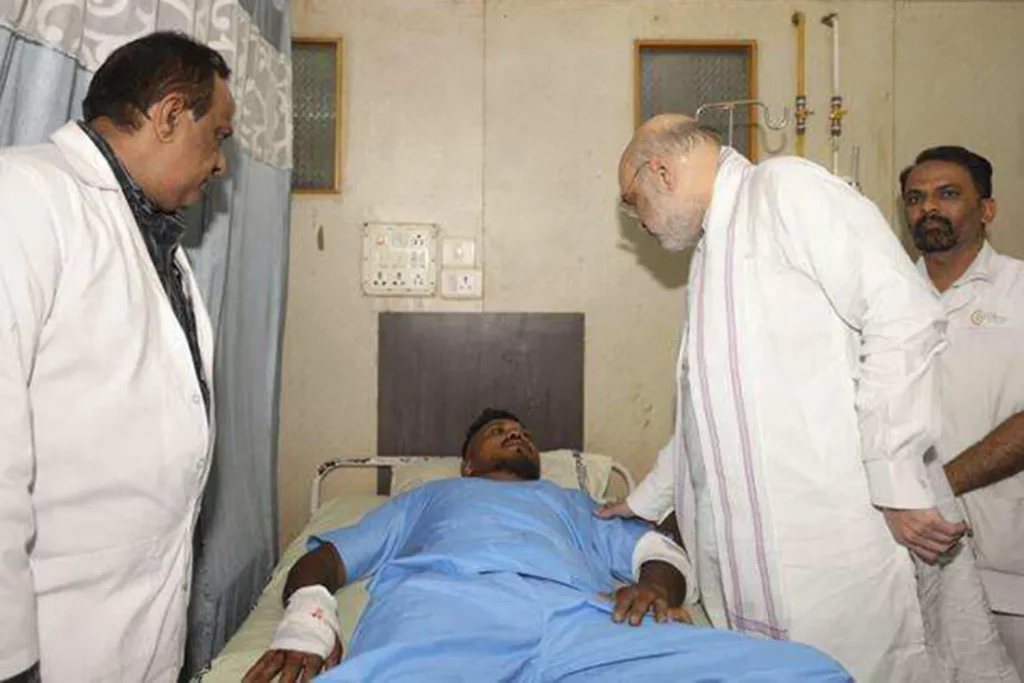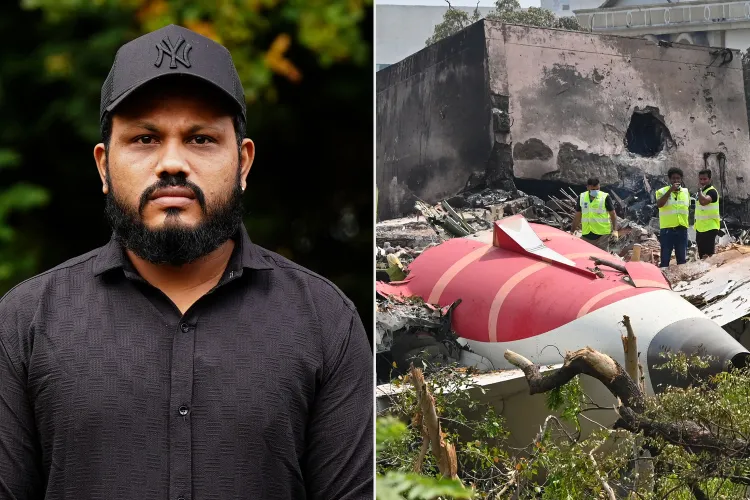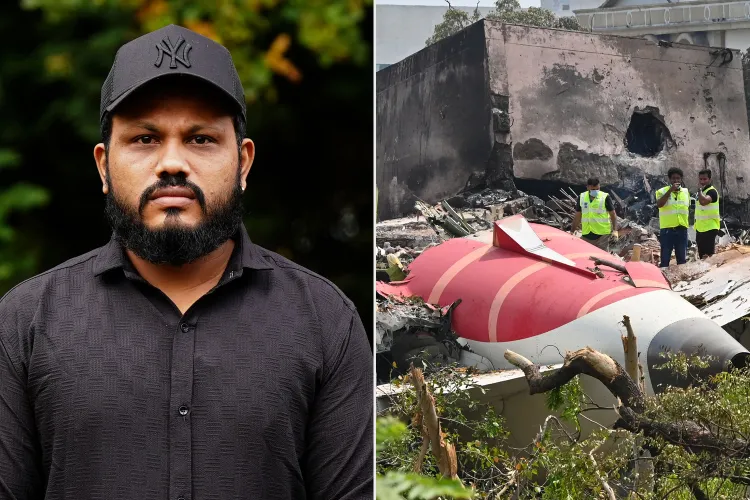Sole Survivor of the Deadly Air India Flight 171 Crash Opens Up After 241 People — Including His Brother — Died: “God Gave Me Life but Took All My Happiness”
For 39-year-old British-Indian national Vishwash Kumar Ramesh, survival feels nothing like a miracle. Nearly five months after the Air India Flight 171 crash that killed 241 people, including his younger brother, he wakes each morning questioning why he’s still here. He’s the only person to walk away alive from one of the most devastating air disasters in recent memory — a label he says feels more like a burden than a blessing.

The tragedy unfolded on June 12, 2025, when the London-bound Boeing 787-8 Dreamliner took off from Ahmedabad and crashed seconds later into a building near the runway. Investigators confirmed that 241 lives were lost — 230 passengers, 12 crew members, and 19 people on the ground. The only survivor was Ramesh, seated in 11A, beside an emergency exit. “Everything happened in front of my eyes,” he told reporters from his hospital bed. “I thought I would die.”
In the moments after the crash, chaos filled the air — fire, screams, metal, and silence. Ramesh said his seat broke free, and through a gap torn open near the emergency exit, he crawled out. He walked in shock, bleeding and disoriented, until rescue teams pulled him away from the wreckage. He remembers hearing his brother’s name called in the chaos, then nothing. When he woke up in the hospital, he was told Ajay was gone.
“God gave me life but took all my happiness,” he said softly in his first interview. “I don’t know why I survived. My brother was with me. He didn’t make it. I wish I could have gone with him.”
Doctors treated him for leg fractures, burns, and deep bruising, but it’s the invisible pain that has proved hardest to heal. “I just stay awake,” he said. “I sleep maybe three or four hours. I see the crash again every night.” His family says the survivor’s guilt consumes him. “He keeps asking, ‘Why only me?’” said his eldest brother in Leicester, England. “He has lost his peace completely.”

Ramesh’s parents, still in shock, say he speaks rarely now. They describe him as once cheerful, playful, and deeply close to Ajay — his younger brother and best friend. The two ran a small family business together before Ramesh moved to the UK. The brothers had boarded Flight 171 together for a short work trip. “They were inseparable,” their mother said through tears. “He survived, but his heart did not.”
The wreckage of Air India Flight 171 was one of the worst aviation scenes in Indian history. Early investigations indicate that both engines lost thrust seconds after takeoff, possibly due to a fuel control failure. The aircraft then tilted sharply, clipped nearby structures, and burst into flames. Most passengers never had time to unbuckle. Ramesh’s seat placement near the emergency exit, and a break in the fuselage that opened on impact, became his only path to life. “That seat saved him,” an aviation analyst told Reuters. “The force distribution and structural failure gave him a way out — something that happens in less than one percent of such crashes.”
But for Ramesh, survival brought no relief. When he returned home weeks later, the joy that people expected to see never arrived. “He was alive, but empty,” said a relative. “He doesn’t smile anymore.” His family keeps him away from media attention. They’ve moved him temporarily to Diu, a quiet coastal town, where he avoids interviews and cameras. His days are spent indoors, curtains drawn, the sound of airplanes sending him into panic.

In a quiet moment shared with a friend, he admitted that the guilt feels unbearable. “Everyone says I’m lucky,” he said, “but I don’t feel lucky. I feel cursed. I keep thinking of all the faces I saw before the crash. Children. Families. My brother. Why did I live and not them?”
Psychologists describe Ramesh’s symptoms as textbook survivor’s guilt — recurring nightmares, emotional numbness, and self-blame. “When only one person survives an event of this scale, the burden of life becomes heavier than death itself,” said trauma expert Dr. Nisha Patel. “People like Ramesh often spend years rebuilding trust in life.”
Friends say he rarely talks about the future. His wife and young son in Leicester speak to him daily, but he struggles to engage. “He doesn’t talk about what happened,” a close friend shared. “He just says, ‘I’m here, but I’m not living.’”
The Indian Directorate General of Civil Aviation (DGCA) continues its investigation, citing possible mechanical error and delayed response procedures. Families of the victims are demanding accountability, while Ramesh has withdrawn from public life. “He can’t bear the noise,” his brother said. “Every question feels like he’s reliving it again.”
In the small room he now occupies, Ramesh keeps two photographs — one of his brother and one of the entire family before the tragedy. He looks at them daily. “He’s lost the ability to celebrate anything,” said a family friend. “He’s breathing, but his mind is still in that plane.”
Experts say recovery from trauma like this can take years, sometimes decades. The pain of being the “only one left” often manifests as both depression and gratitude — a painful mix of emotions that can’t easily coexist. “Survivors of mass tragedies carry dual lives,” said Dr. Patel. “They wake up thankful, but go to sleep broken.”
Despite it all, Ramesh continues physical therapy. His body heals slowly, his limp fading, his breathing stabilizing. Yet he admits that emotionally, progress feels impossible. “I can’t forget the smell of the fuel, the sound of the screams,” he said. “I can’t forget my brother’s seat. It’s always there in my head.”
As months pass, the spotlight on the crash dims, but for Ramesh, time does not move forward. He still avoids air travel and says he cannot even watch television coverage of the investigation. “He avoids news completely,” his father said. “We try to protect him from anything that reminds him of that day.”
For the families of the 241 victims, he remains a symbol — a living reminder of loss, survival, and the fragility of fate. Yet he resists being treated as a symbol at all. “Don’t call me lucky,” he said in one interview. “Call me what I am — someone who lived when everyone else died. That’s not luck. That’s punishment.”
He carries that guilt every day, even as people tell him to find purpose. He says his only purpose now is to honor those who didn’t make it, especially his brother. “I pray for them,” he said. “That’s all I can do.”
When asked what he wants most, his answer was simple. “Peace,” he said. “Just peace.”
As the investigation nears its final report and families await closure, Ramesh’s story stands as a sobering testament to what survival really means. In a world quick to celebrate miracles, he reminds us that living through the unimaginable is not always a gift — sometimes, it’s a lifelong reckoning.


